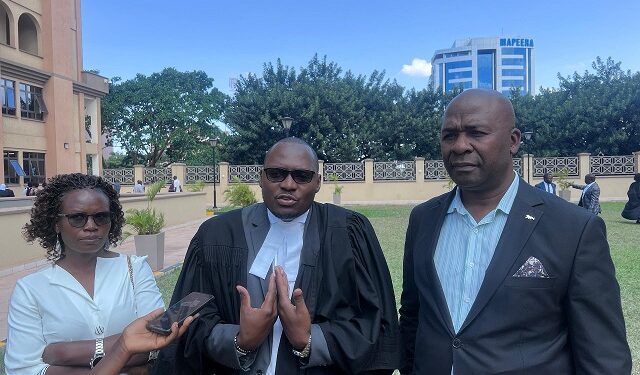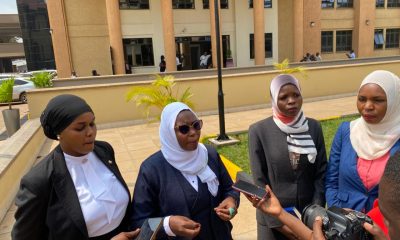Law
Constitutional Court Hears Petition Challenging Legality of City Woman MPs, Municipal Representatives
The Constitutional Court today commenced hearings on a landmark petition challenging the constitutionality of the 10 City Woman Representatives and Members of Parliament representing Municipalities, a move that could significantly alter the composition and cost of Uganda’s Parliament.
The petition, filed by the Alliance for Finance Monitoring, Walezi Wa Katiba Foundation, and advocate Peter Magelah Gwayaka, argues that these parliamentary positions are not consistent with the provisions of the 1995 Constitution.
Michael Aboneka, legal counsel for the petitioners, outlined four key grounds for their challenge. Primarily, they contend that the Constitution explicitly provides for “one woman representative for every district” under Article 78(1)(c), making the creation of City Woman Representatives unconstitutional.
Secondly, the petitioners are challenging the creation of 12 municipalities before the 2024 census, citing Article 63, which mandates that demographic changes impacting electoral areas must be made within 12 months after the publication of a census.
The third concern revolves around the potential for an excessively large Parliament. Aboneka questioned whether the creation of constituencies for each municipality would lead to an unmanageable legislative body.
Finally, the petitioners argue that the creation of municipalities is primarily for local government purposes and should not automatically translate into parliamentary representation. Aboneka highlighted that Article 181(3) provides for representation at the district council level for town councils, sub-counties, or their equivalents, further emphasising the distinction between local government units and parliamentary constituencies.
Henry Muguzi, CEO of the Alliance for Finance Monitoring, articulated the financial implications behind the petition. “One of our key motivations is to alleviate the burden on taxpayers, given the significant cost of remunerating members of parliament,” Muguzi stated. He added that the “rising cost of politics” has become a considerable burden on both elected leaders and taxpayers, particularly “at a time when the country is overburdened and there’s a pressing need to reduce public administration expenditure.”
Muguzi expressed hope that the court would agree that the individuals holding these contested offices are doing so “illegally.” He also urged the Attorney General and the Electoral Commission, who are respondents in the petition, to treat the matter with urgency. “Despite their appearance today, they sought to delay proceedings, citing the need to supplement their affidavits. We believe this is a waste of time,” Muguzi said, referring to the court granting them a five-day deadline to respond. “Our goal is to resolve this matter promptly and reduce the financial burden on taxpayers.”
The petitioners are seeking several reliefs, including orders for City Woman Representatives and Members of Parliament representing Municipalities to vacate their offices with immediate effect, and a prohibition against the Electoral Commission from conducting elections for these specific categories.
Muguzi emphasised that the “bloated” nature of Parliament is a significant driver of the high cost of politics. “The numbers of which we think are overwhelming and uncalled for,” he asserted.
The Constitutional Court has given the Attorney General five days to file their response. Following this, the court will deliver its judgment on notice, with the petitioners keenly anticipating a decision before the next election cycle.
Comments

























